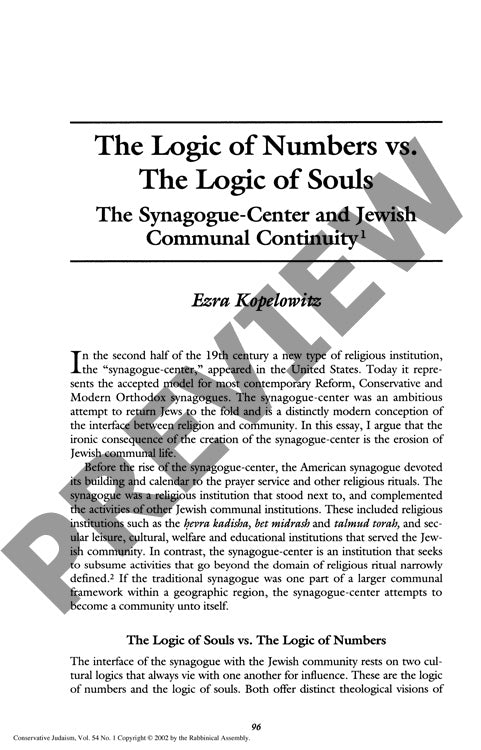The Logic of Numbers Vs the Logic of Sou
Couldn't load pickup availability
The transformation of American synagogues into modern "synagogue-centers" created an enduring tension between institutional growth and spiritual authenticity that continues to shape Jewish communal life. As synagogues evolved from traditional houses of worship into multi-purpose community centers during the late 19th and 20th centuries, two competing organizational philosophies emerged: the "logic of numbers," which pursued membership growth and financial stability, and the "logic of souls," which prioritized religious depth and communal quality. Historical analysis of this transformation, particularly within Conservative Judaism, reveals that while synagogue-centers successfully attracted non-observant Jews through expanded programming and reduced religious obligations, they inadvertently weakened broader Jewish communal life. This dilution occurred through competition with non-denominational institutions and the creation of denominational divisions. The emphasis on numerical growth led to problematic innovations: theatrical prayer services replaced participatory worship, age-based segregation undermined family religious units, and institutional structures favored passive membership over active engagement. The findings suggest two potential paths forward: either returning synagogues to their traditional religious focus while fostering cooperation with other communal institutions, or restructuring synagogue-centers to incorporate smaller, member-led religious communities that restore participatory worship and strengthen interfaith community connections.

More Information
-
Physical Description
-
Publication Information
Published 2001
ISBN
-
Publication Credits
Ezra Kopelowitz

